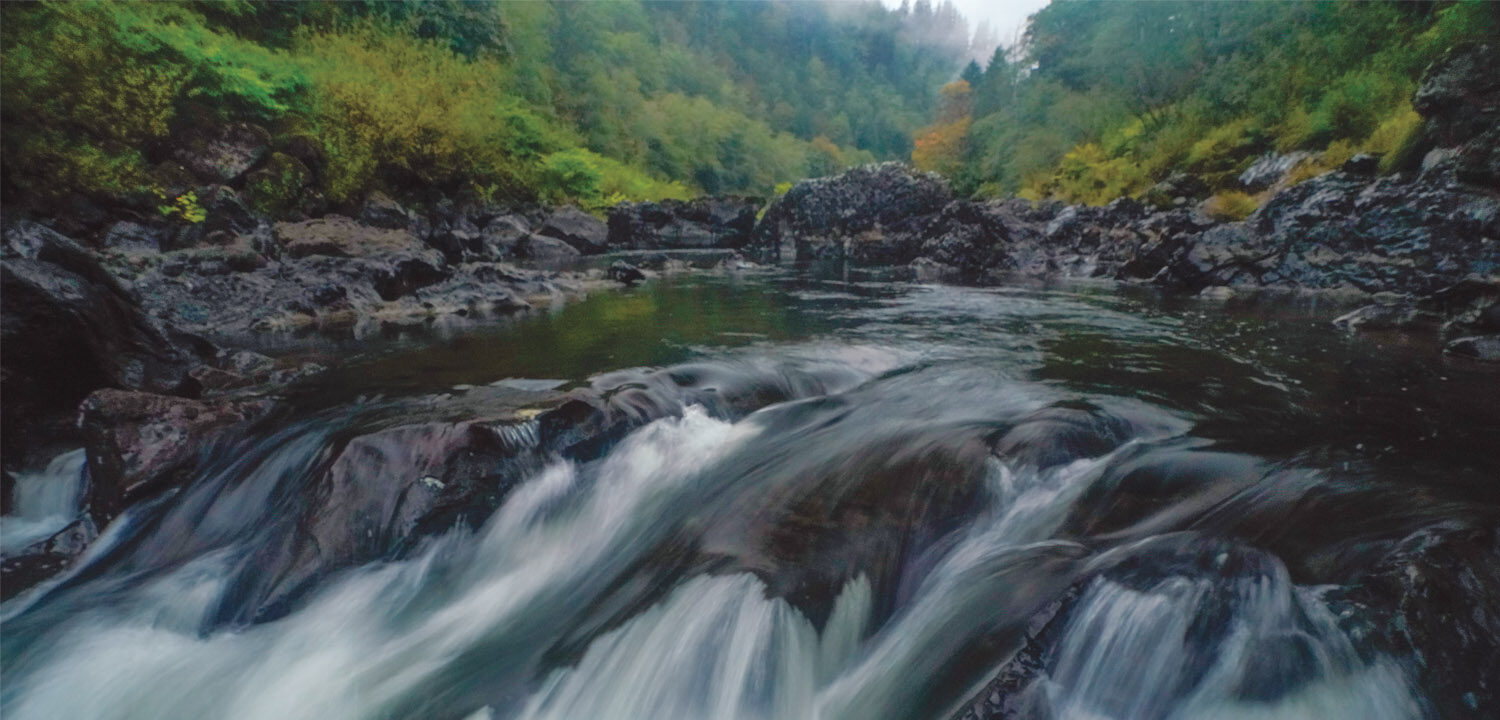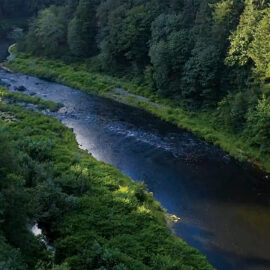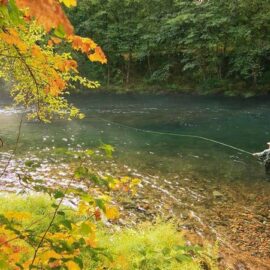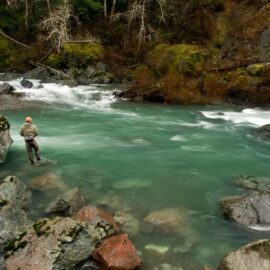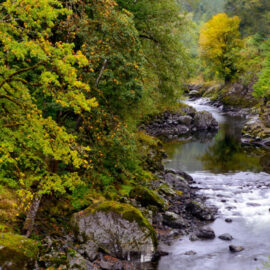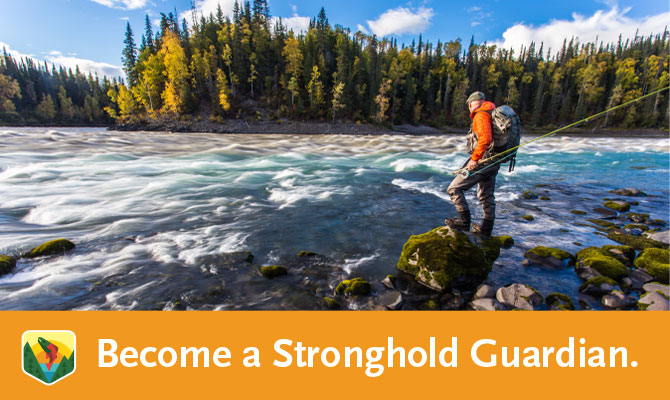UPDATE: The Oregon Legislature’s 2022 session passed the monumental Private Forest Accord, which will bring durable protections for salmon and cold, clean water across 10 million acres of private Oregon forestland.
Over the span of just 32 days, the legislature passed the monumental Private Forest Accord, which will bring durable protections for salmon and cold, clean water across 10 million acres of private Oregon forestland. The legislature also established the Elliott State Research Forest, which will transform this coastal rainforest into a sanctuary for science. And the legislature allocated a first-ever river resilience funding package to protect streamflows in the face of drought.
Oregon’s clear, cold lakes and rivers are the pride of the state. They deliver drinking water to cities and towns, irrigate Oregon’s unique crops, nurture fish and wildlife, and host hundreds of thousands of boaters, fishers, swimmers, and other recreators every year.
Oregon was once a leader in protecting forested streams. But for decades, the state has been falling behind. Oregon’s outdated logging rules are now far less protective than in neighboring Washington, Idaho and California. And that’s harming Oregon waterways and taking a steep toll on fish, wildlife, and communities.
Oregon can and must improve protections from heavy logging near streams, to keep safe its most precious resource—water.
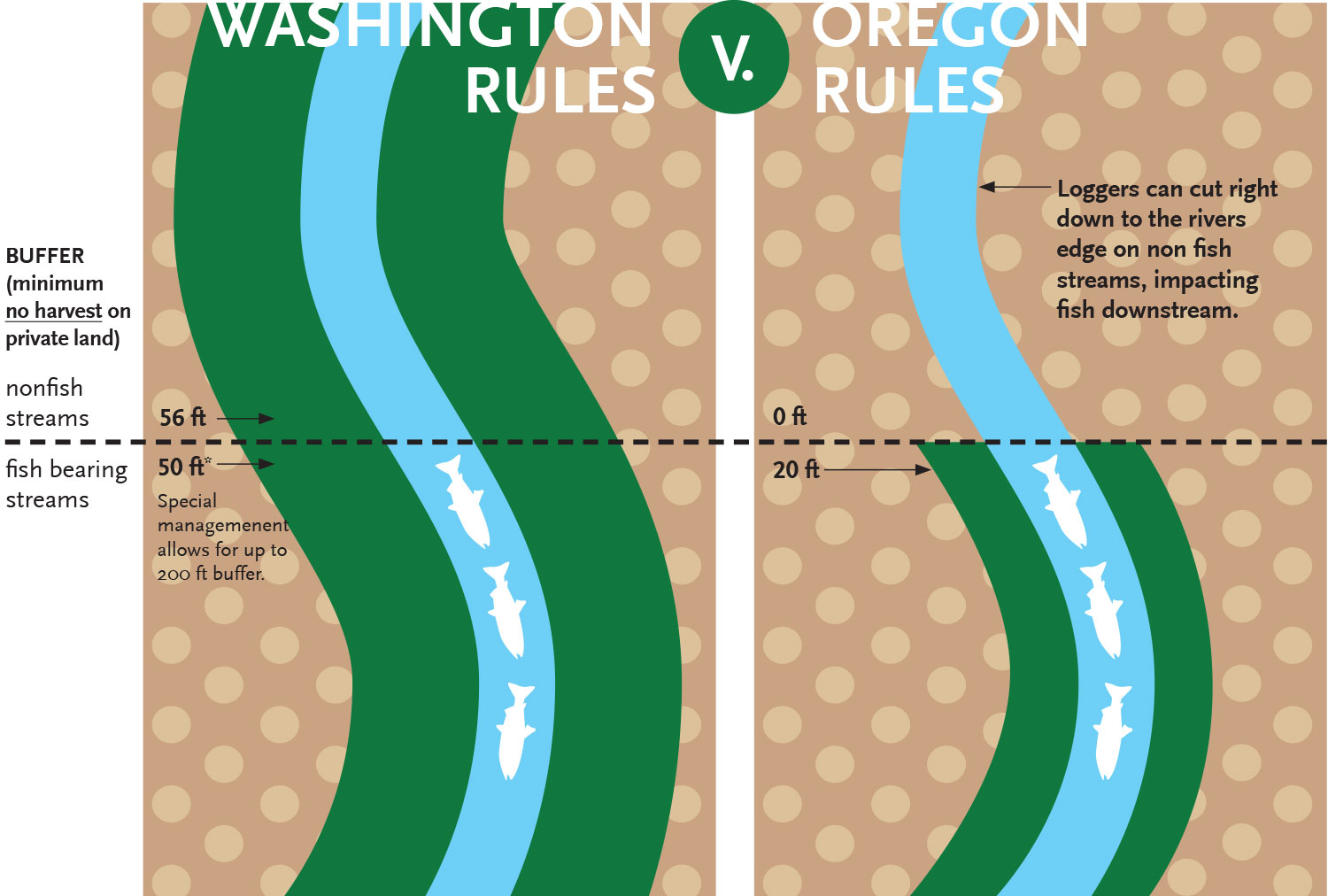
Squeezing Salmon Streams
Oregon’s required forested buffers for streams represent a fraction of the protection required by Washington State. Oregon’s weak rules dramatically increase risks for fish:
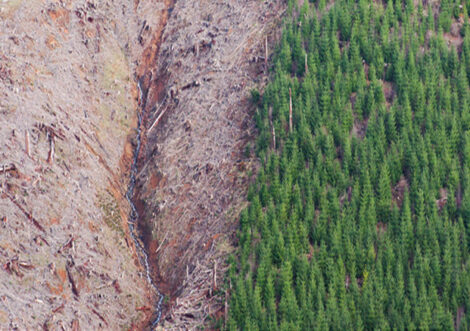
- Fewer shade trees along streams drive up summer temperatures for cold water fish like salmon.
- Thin forest buffers reduce the number of logs and woody debris in streams. That lack of large natural debris drastically reduces the diverse pools, gravels, and other habitat that salmon need to lay their eggs, and to nurture the next generation of juvenile fish.
- In storm events and heavy winter rains, forest buffers act to filter heavy sediments flowing downhill that can smother salmon eggs in streams.
The federal government has explicitly said that Oregon’s poor forest practices violate the Clean Water Act and don’t adequately protect fish, including threatened Oregon Coast coho salmon. As a direct result of Oregon’s poor forest laws, the Environmental Protection Agency has cut off millions in grant funds that the state previously received.
Dirtying Our Drinking Water
In the Coast Range and on the Oregon Coast, many communities depend on drinking water that flows through private forestland. But more and more dirty sediment—driven in part by heavy logging—is ending up in their drinking water streams. Increased pollution of streams on industrial lands is forcing cities to install costly water treatment upgrades.

logging – is ending up in drinking water streams, especially
in coastal communities.
Of five Oregon cities that draw their water primarily from streams on industrial lands, four saw increasing pollution, according to a recent analysis. This private pollution costs these communities public dollars: raising the costs of filtering their drinking water before they can send it to taps. The City of Arch Cape had to raise $1 million for an upgraded water treatment facility. And in 2011, Rockaway Beach, which also draws most of its water from a creek on industrial land, was forced to build a new $1.7 million water treatment plant.
The Path Forward
Oregon needs to bring its forest practices in line with Washington State, which balances protections for water with a thriving forest products industry (valued at $28 billion in 2018).
Go to ForestWaters.org now to learn more about citizen-led measures to protect our forest waters.
Hear from Rockaway Beach resident Nancy Webster and WSC Director of Science Matt Sloat about the need for improved forest practices in Oregon.
